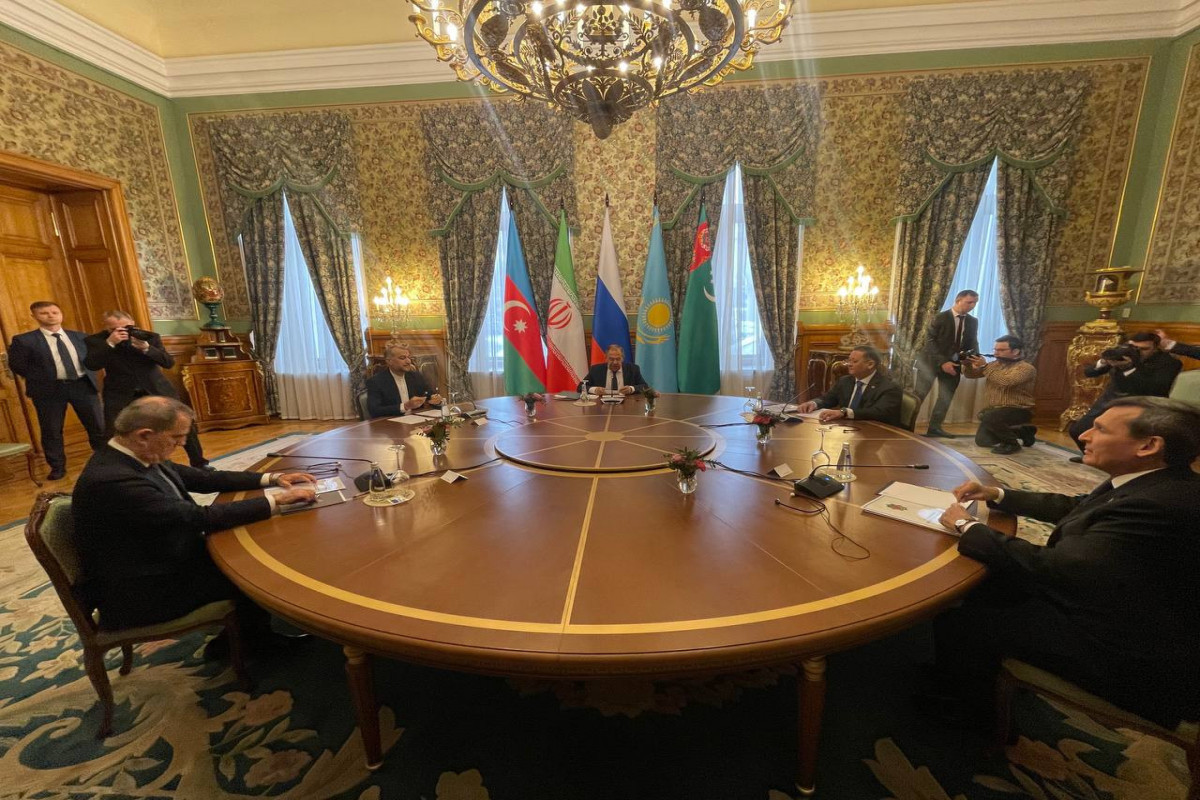The Caspian Convention is delayed again How to benefit your neighbour?
On December 5, 2023, the ministerial meeting of the Caspian littoral states convened in Moscow to discuss the legal status of the Caspian Sea for the next time, albeit with no breakthrough. While Russian Foreign Minister Sergei Lavrov welcomed all his counterparts at the meeting, he held separate meetings with Iranian and Azerbaijani counterparts.
The individual meeting with the Iranian Foreign Minister resulted in the signing of a special document to "facilitate the bilateral cooperation to eliminate negative consequences of economic sanctions".
The top agenda of the ministerial meeting was to resolve all disputes regarding the Caspian's status among littoral states, as this issue faced a long stalemate for more than three decades. Despite that, the regional states ensured a significant breakthrough in 2018 by signing the Convention on the Legal Status of the Caspian Sea, Iran's deliberate delay in the ratification of the document raised eyebrows in Moscow.
The Convention took 22 years to negotiate between littoral states, the Russian Federation, Azerbaijan, Kazakhstan, Turkmenistan and Iran and was finally signed in 2018. The Convention constitutes an attempt to regulate the Caspian Sea's status as such and aims to set out general directions for further works on its final division between five littoral Caspian nations.
One of the most significant outcomes of the Convention is the ban on the presence of armed forces of non-littoral states in the Caspian Sea under Clause 3.6. Nor, under Clause 3.7, can any party to the Convention offer its territory to other states for committing aggression or other military actions against any littoral state. These military aspects of the deal echo a narrative long propagated by Russia to avoid conflicts and maintain peace, there must be a legally binding agreement that NATO will not expand in this region.
While the other four countries have ratified the agreement, Iran has refrained from ratifying the treaty so far, as it has come under public criticism for conceding too much of its territorial rights. The Caspian seabed has many resources, including oil deposits that the Convention has tried to delimit according to a unique arrangement distinct from the International Law of the Sea.

For this reason, Russian Foreign Minister Sergei Lavrov mentioned earlier this spring that “Iran should ratify the Convention on the Convention on the Legal Status of the Caspian Sea as soon as possible so that the Convention can come into force. However, the Iranian authorities usually refer to the “ongoing expert and technical negotiations related to determining the “baselines” of the Caspian Sea." The delay issue goes back to the provisions of Article 1 of the treaty, which mentions both a “Normal Baseline” and “Straight Baselines” as methods for determining the breadth of a state’s inland and territorial waters. Hence, due to the concave shape of the Iranian coast along the southern edge of the Caspian, Tehran’s main challenge is this definition of “Straight Baselines” within the document.
Moreover, Iran made clear that it doesn’t believe the 2018 agreement was fair as far as it is concerned and is calling for more negotiations. Iran has hitherto advocated either an even division of the Caspian Sea into 20-per cent sectors or a joint exploitation of natural resources from the seabed. As a result, some Iranians have considered the Convention in terms of a state's betrayal.
The Iranian narrative suggests that the Convention largely neglects Iran’s national interests regarding the maritime borders as the country is in a less favourable position compared to neighbouring states. This is mainly due to Iran's geographically complicated position in terms of maritime borders.
On the other hand, the lack of final agreement on the legal status affects the disputed question of the right to construct underwater pipelines on the seabed of the Caspian Sea. Such a stance undermines the plans of Azerbaijan and Turkey to facilitate the construction of the Trans Caspian gas pipeline from Turkmenistan that would allow Turkmen gas to be brought through Azerbaijan to European markets.
However, despite the commitment of Russia and other coastal states to conclude the process of delimitation of the Caspian Sea, the final agreement on the issue is still far from being signed and ratified by all parties.








